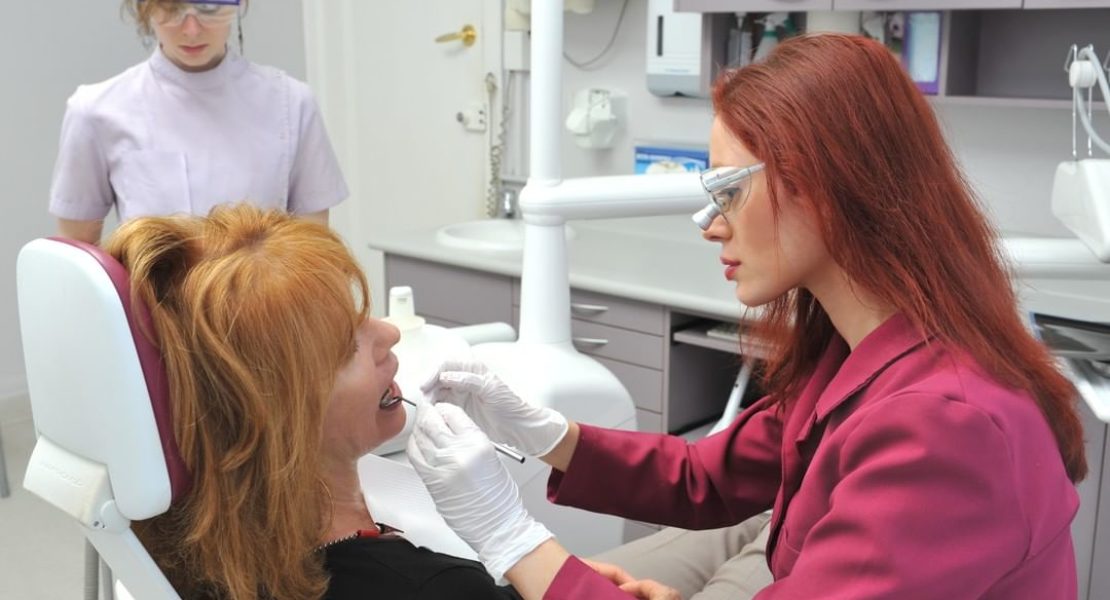Dr Helen speaks to Australia Business News about the most common signs and symptoms of dental anxiety and how you can manage this form of anxiety.
Melbourne Dentist Dr Helen Voronina has been working in dentistry for almost two decades. Her ability to work with clients and help them feel safe and comfortable has lead to her now renowned status as an expert in the field of dental anxiety and dental phobias.
We asked Dr Helen a few questions to help you better understand dental anxiety.

What are the most common signs and symptoms of dental anxiety
- Sweating
- Racing Heartbeat
- Visible distress, crying or signs of panic / panic attacks
- Obvious withdrawal, humour or aggression to mask the anxiety
- Low blood pressure
- Fainting
- Trouble sleeping
- Clenching teeth
- Aches and pains from lack of dental care
What are the causes of dental anxiety?
- Traumatic experience
- Trust issues
- Generalised anxiety or depression
- Lack of confidence
- Fear of needles
- Fear of sharp ‘nervy’ pain
- Loss of control in the chair
- Fear of choking or instruments in the mouth
- The sound of drilling
Does dental anxiety affect only particular people?
Dental anxiety doesn’t discriminate. It can affect patients of all ages. A single traumatic experience can shape a patient from childhood. Patients of all walks of life can be affected by a dental anxiety, from students to pensioners–which raises an important point. Men are often affected by dental anxiety but many feel that showing fear or discussing this anxiety with a dentist is ‘weak’. Men and women alike are affected by a fear of the dentist.
How does Dr Helen’s Dental & Implant Studio help clients with anxiety?
Because of Dr Helen’s reputation of being “The Melbourne Anxiety Dentist”, many patients think that Dr Helen has a magical cure for treating dental phobias. However, it’s not aromatherapy or meditation or even relaxing music that will put you at ease in the dentist chair. It’s about finding a dentist who you can speak with about the source and nature of your dentist anxiety and trusting them to work with you to put you back in control.
Some helpful hints:
- Needle phobia: At Dr Helen’s clinic, she teaches patients how to minimise the pain of injection with a few handy tips and tricks as well as using numbing cream, small, localised injections, and booking extra time for appointments to extend the injection time which greatly reduces pain. Opening wide during an injection also greatly reduces pain, which you can try at your next appointment!
- Loss of control: Dr Helen advises patients that they work with their dentist to sing out if something doesn’t feel right or if they need a little break. Once a patient learns that a dentist will stop their work and listen, the patient can begin to feel in control again.
- Fear of drilling: Earbuds with your favourite music, friendly conversation with a cheerful dental assistant, or even finding a dentist who explains what each instrument does before beginning a new treatment can be extremely helpful. Sometimes just knowing that the whirr of an instrument is just polishing up the edge of a tooth or the sound of the suction drawing some of the water away from your mouth is enough to put you at ease!
And if you’re still feeling anxious?
Dr Helen’s Melbourne Dentistry Clinic offers a range of sedation options, from mild sedatives to full general anaesthetic right in her clinic with Medicare rebates available on the sedation cost. There’s truly an option for everyone, whether you’re ready to treat dental anxiety or just sleep peacefully through your treatment.
Ultimately, you’ll notice a key theme here: finding a dentist who makes extra time for patients to work on their dental phobias and put them back in control in the chair. Dentists who educate and reassure their patients find that their patients have the least amount of fear coming in to have dental work done. Dr Helen has even had patients who couldn’t sit in the dental chair their first appointment but come back for regular check-ups with a smile on their face!
Treating your dental phobia is possible with the right dentist.
